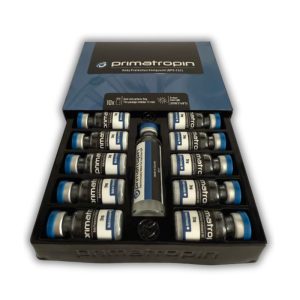
WHY YOU MAY LOOK FATTER AFTER A MONTH OF WORKING OUT
Starting a new workout regimen comes with a plethora of expectations, with everyone’s primary goal oftentimes revolving around losing fat and gaining muscle. However, many individuals find themselves puzzled and even disheartened when they appear to look "fatter" after diligently exercising for a month. If you've experienced this unexpected outcome, you're not alone. This, while confusing, is not uncommon and can be attributed to several factors. Coming from team members who have experienced it first-hand, let’s break down why this may be the case.
UNDERSTANDING THE "FATTER" APPEARANCE
Firstly, it's crucial to understand that the journey to reaching fitness goals can be complex and varies from person to person. Here are some reasons why you might feel or look "fatter" after a month of consistent exercise:
1. WATER RETENTION
When you start a new workout program, your body undergoes stress due to the unfamiliar physical demands. This stress response can cause your muscles to retain water to protect and repair themselves. This water retention can make your muscles appear larger temporarily, which some might confuse with fat gain.
2. GLYCOGEN STORAGE
Exercise depletes your muscles' glycogen (stored carbohydrates), which your body replenishes when you eat carbohydrates. For every gram of glycogen stored, approximately 3 grams of water are also stored. Increased glycogen levels can lead to a fuller look, which is often mistaken for fat.
3. INFLAMMATION & MUSCLE REPAIR
Intense workouts cause micro-tears in muscle fibers, leading to inflammation as part of the repair process. This inflammation can cause your body to swell slightly, giving the impression of increased fat.
4. BODY COMPOSITION CHANGES
If you're new to exercising, initial gains in muscle mass may outpace fat loss. Since muscle is denser than fat, you might not see a significant change on the scale, or you may even see a slight weight increase. This can mistakenly be interpreted as gaining fat.
STRATEGIES & TIPS TO CONSIDER MOVING FORWARD
Understanding these reasons can provide some peace of mind, but that’s only the first bit. You of course still need to take action in order to reach your goals. Here's how you can further navigate this phase moving forward:
1. PATIENCE IS KEY
Fitness is a marathon, not a sprint. It takes time for your body to adjust to new workout routines and for visible changes to manifest.
2. FOCUS ON BODY COMPOSITION, NOT JUST WEIGHT
Use body composition tests or measurements to track your progress. Muscle gains can offset fat loss on the scale, so consider other metrics like body fat percentage or how your clothes fit.
3. STAY HYDRATED
Proper hydration can help reduce water retention. Oddly enough, drinking more water can signal your body to release stored water.
4. BALANCE YOUR DIET
Ensure your diet supports your workout goals. Focus on balanced nutrition that includes protein, healthy fats, and carbohydrates to fuel your workouts and recovery.
5. CONSISTENCY OVER INTENSITY
Proper hydration can help reduce water retention. Oddly enough, drinking more water can signal your body to release stored water.
Feeling or looking "fatter" after a month of working out can be discouraging, but it's a common experience for many like yourself. It's essential to adopt a long-term perspective on your fitness journey, focusing on consistent effort and holistic measures of progress. With patience, proper nutrition, and a balanced workout plan, you'll move past this phase and closer to your fitness goals. Pur Pharma offers the highest quality fat loss & fat burning products on the market to help accelerate this process for you. If you have any questions, please feel free to reach out to our customer support team.
LATEST ARTICLES
















